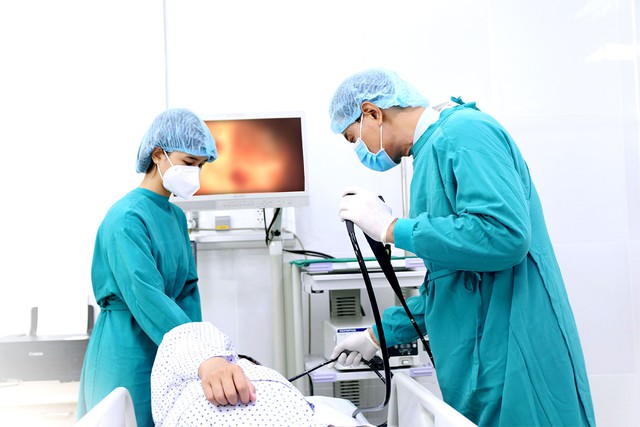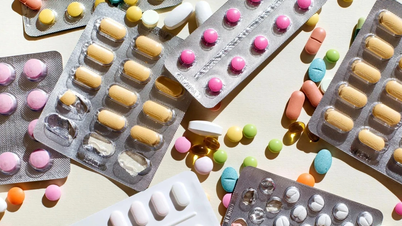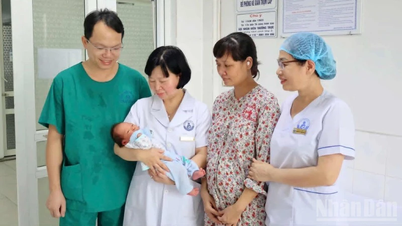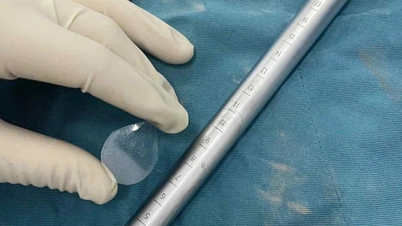What is gastric reflux?
Gastroesophageal reflux (GERD) is a condition in which acid, gastric juice or sometimes food flows back into the esophagus, due to poor function of the lower esophageal sphincter. When acid comes into frequent contact with the esophageal mucosa, it will irritate the mucosa, leading to uncomfortable symptoms such as: Heartburn, acid reflux, difficulty swallowing, chronic cough, chest pain, hoarseness or sore throat. Symptoms of gastroesophageal reflux are often overlooked, leading to delays in treatment.
Why are young people susceptible to gastric reflux?
In Vietnam, this disease is becoming a public health problem, especially among young people. Master, Doctor, Specialist I Nguyen Vu Quang - General Surgery Doctor at Nam Sai Gon International General Hospital explained: "Young people often do not think they have digestive diseases at their age, but today's living habits are making gastric reflux a common health problem in this age group".

Young people often do not think they have digestive problems like acid reflux at their age.
Photo: AI
Early diagnosis - the key to effective disease control
Dr. Quang recommends: "Many people think heartburn and acid reflux are just minor problems, but if they happen frequently, they could be signs of gastroesophageal reflux. We should pay attention, get examined early and have a digestive endoscopy to check if the symptoms last more than 2 weeks."
Currently, many large hospitals have deployed modern endoscopy systems, including the Nam Sai Gon International General Hospital. These techniques help detect early the smallest lesions in the esophagus, stomach and colon. In addition to reflux, endoscopy also helps screen for other dangerous diseases such as ulcers, polyps, foreign objects, and even early detection of the risk of gastrointestinal cancer.

Painless gastrointestinal endoscopy helps in early screening of gastrointestinal diseases, especially dangerous cancers.
Photo: BVCC
Early diagnosis and timely treatment of gastroesophageal reflux disease can avoid serious complications that affect the quality of life such as: Esophageal stricture; esophageal inflammation and ulcers ; Barrett's esophagus increases the risk of esophageal cancer; respiratory diseases such as asthma or pneumonia...
Treatment of gastric reflux
For the treatment of gastroesophageal reflux, treatment usually depends on the severity and is carried out under the guidance of a doctor. The common method of treating gastroesophageal reflux is medical treatment (using drugs) combined with lifestyle changes to improve the condition of the digestive system and overall health. If the patient's gastroesophageal reflux does not respond to medication, surgical methods may be considered to strengthen the esophageal sphincter.
To reduce the risk of gastric reflux, Dr. Nguyen Vu Quang gives practical suggestions to change unscientific living habits (the main cause of gastric reflux):
- Adjust eating habits: Do not eat late at night, avoid lying down immediately after eating (at least 2-3 hours); limit spicy, sour foods, coffee and alcohol.
- Increase exercise: Do 30 minutes of light exercise every day, such as brisk walking, to improve digestion and lose weight if needed.
- Weight control: Lose weight if overweight to reduce pressure on the stomach and limit reflux.
- Sleep in the correct position: Raise the head of the bed 15-20 cm to prevent acid reflux at night.
- Regular checkups: Get a digestive health checkup every year, especially if you have unhealthy eating habits.
"If you often feel heartburn and discomfort after eating, go to a hospital with a gastroenterology department for a gastrointestinal endoscopy. Early detection will help with more effective treatment and avoid dangerous complications, especially preventing the risk of progression to cancer," emphasized Master Doctor Nguyen Vu Quang.
Gastroenterology Clinic - Nam Sai Gon International General Hospital: Comprehensive, safe and effective digestive care
The Gastroenterology Clinic - Nam Sai Gon International General Hospital is a trusted address for patients with digestive, liver - gallbladder - pancreas problems such as colitis, gastritis, gastric ulcers, duodenal ulcers, gastrointestinal bleeding, gastroesophageal reflux, etc. With a team of highly specialized and experienced doctors and a modern endoscopy and imaging system, the department always puts the safety and comfort of patients first.
Outstanding services at the department include screening, diagnosis and treatment of hepatobiliary - pancreatic diseases; performing endoscopic procedures from the esophagus, stomach, duodenum to the colon, rectum and anus. In addition, the department also specializes in treating anal diseases such as internal hemorrhoids, anal fissures; screening and treatment of intestinal parasite infections. Complex digestive tract diseases are also diagnosed and treated comprehensively, from gastric - duodenal ulcers (with or without HP infection), ulcerative colitis, Crohn's disease, reflux esophagitis, to gastrointestinal bleeding, polyps and gastrointestinal cancers. All examination procedures are standardized according to international standards, helping to detect early and treat patients promptly.
With the motto "Dedication - Accuracy - Safety", the Department of Gastroenterology - Nam Sai Gon International General Hospital is committed to accompanying patients on the journey of long-term digestive health care, helping to improve the quality of life for the community.
SOUTH SAIGON INTERNATIONAL GENERAL HOSPITAL
Address: 88 Street No. 8, Trung Son Residential Area, Binh Chanh, Ho Chi Minh City
Hotline: 18006767
Fanpage: https://www.facebook.com/BenhVienDaKhoaQuocTeNamSaiGon
Website: https://benhviennamsaigon.com/
Source: https://thanhnien.vn/bac-si-bao-dong-trao-nguoc-da-day-o-nguoi-tre-18525091117405705.htm





![[Photo] President of the Cuban National Assembly visits President Ho Chi Minh's Mausoleum](https://vphoto.vietnam.vn/thumb/1200x675/vietnam/resource/IMAGE/2025/10/1/39f1142310fc4dae9e3de4fcc9ac2ed0)
![[Photo] Keep your warehouse safe in all situations](https://vphoto.vietnam.vn/thumb/1200x675/vietnam/resource/IMAGE/2025/10/1/3eb4eceafe68497989865e7faa4e4d0e)
![[Photo] Hanoi morning of October 1: Prolonged flooding, people wade to work](https://vphoto.vietnam.vn/thumb/1200x675/vietnam/resource/IMAGE/2025/10/1/189be28938e3493fa26b2938efa2059e)
























































































Comment (0)